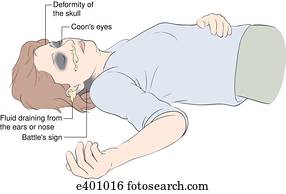

While this isn’t an actual eye trauma, it’s important enough to mention in this list.
#Signs of trauma skin#
While age-related collagen and elastin loss makes everyone’s facial skin a little limp, a sudden and severe droop in one of your eyelids is a sign of a stroke or a neurological problem such as Bell’s Palsy or nerve damage. It would be best if you still talked to your ophthalmologist about double vision, as dry eyes and cataracts can also cause it. If you close one eye and your double vision stops, have a friend or family member take you to the emergency room. Double visionĭouble vision can be a sign of a neurological problem, which may or may not result from trauma. Redness may subside on its own, but if it’s persistent or accompanied by pain, you’re best off consulting with one of our trusted eye doctors. Severely red eyes can be caused by broken blood vessels in your eye, which may be caused by trauma. Redness can also be caused by infections like conjunctivitis (aka pink eye). Your eyes might become red if the air is very dry or smokey.
#Signs of trauma professional#
Then come in to see us for a professional evaluation and treatment, if needed. If you’re at home, using a shower may work better. If any kind of foreign substance was splashed into your eye and it burns, find the nearest eye washing station or rinse your eye with clean, warm water at a sink for 20 minutes. A problem like closed-angle glaucoma can also cause sudden eye pain and blurred vision, and it’s a common cause of blindness. While blurry vision is often due to insufficient lubrication in your eye, sudden or severe blurriness can indicate a problem with your optic nerve that may occur after trauma.

Blurry visionīlurry vision is another common sign of an eye problem. If your eye hurts, whether it’s burning or throbbing, if your pain persists for more than a minute or two, you need to call our team of ophthalmologists for help. It’s how your body signals that there’s a problem. You should never ignore pain, especially if your eye has suffered trauma. Our team shares eight of the common signs of eye trauma, so you know when to seek immediate help. If you sustain an eye trauma, our team of expert ophthalmologists at the Retina Specialists offices - in Dallas, DeSoto, Plano, Mesquite, and Waxahachie, Texas - offer expert treatment to protect your vision. Most eye traumas are work-related or involve chemicals, although eye injuries are also common in sports, automobile accidents, and personal assault. You could talk to a trusted friend or family member who will listen without judging or giving advice, or reach out to a professional therapist who specializes in PTSD (post-traumatic stress disorder).More than 2.4 million Americans injure their eyes every year, and up to 20% of eye injuries result in temporary or permanent vision loss. Talking about what's happened can be an effective coping mechanism because it allows you to express how the traumatic event has impacted your life and lets others know how they can support you in coping with it. You should also consider talking to someone about your experience. It is important that you find a treatment that works for you and that makes you feel comfortable. There are also other types of treatments such as art therapy, somatic therapies, and other forms of psychotherapy that can be beneficial. For example, you can use cognitive behavioral therapy to help you process your trauma.Ĭognitive-behavioral therapy is a method of psychotherapy that helps people change the way they think and behave in order to manage their emotional responses. There are many ways to cope with your trauma.


 0 kommentar(er)
0 kommentar(er)
